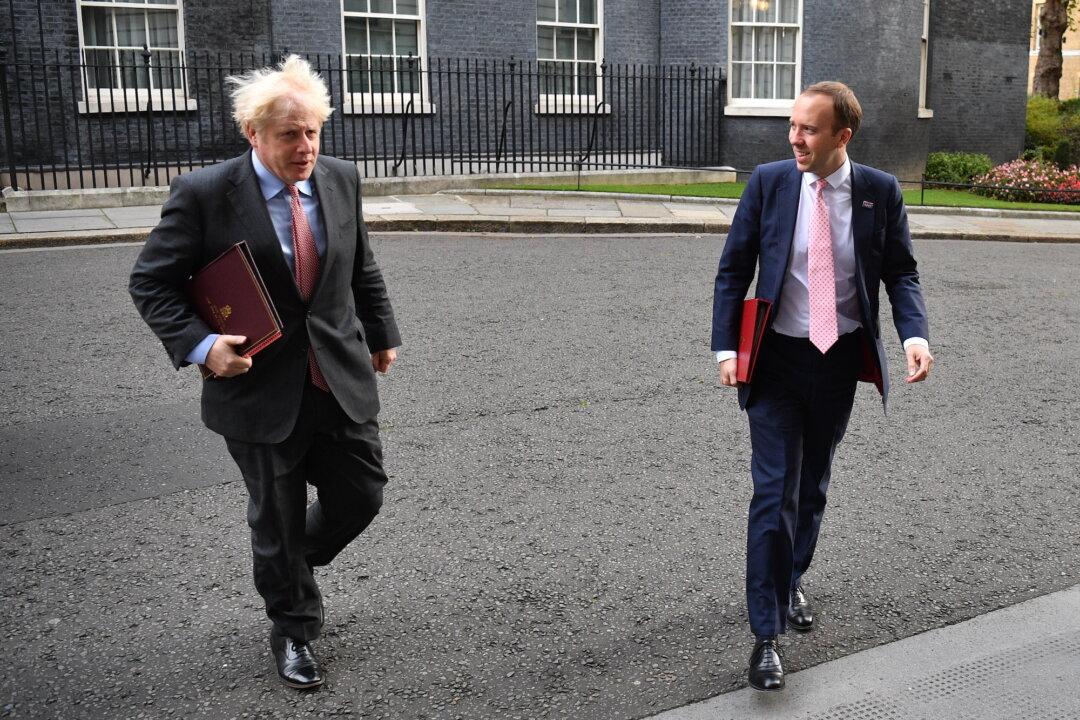Britain’s CCP virus restrictions could be over by Easter if a three-pronged approach of “tiering, testing, and the roll-out of vaccines” work to combat the disease over the winter.
That’s according to Prime Minister Boris Johnson who said an end goal date was in sight following the “fantastic news that the Oxford/AstraZeneca vaccine has been highly effective in clinical trials.”





